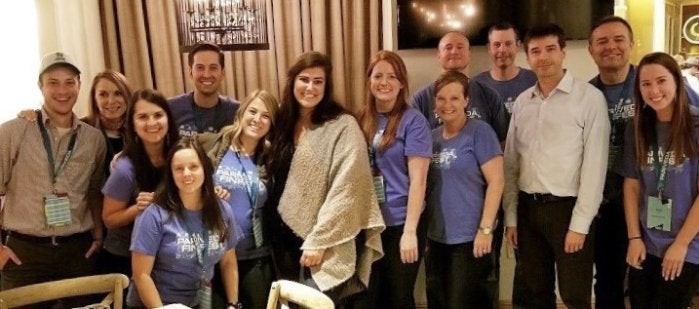Lots of companies talk up career development, touting their commitment to mentorship and training. At Pariveda Solutions, the goal is a bit more lofty: The 500-person management consulting firm promises to grow individuals to their fullest potential, including achieving vice president status after participating in a years-long, intensive grooming program.
Not every Pariveda employee wants to be a vice president, of course, and not every professional will get there. However, the company’s commitment to continuous learning and the development of IT talent with an eye toward leadership and business acumen, not just technical chops, is what sets it apart from other companies in the business. It also contributed to Pariveda’s ranking as the No. 13 small company on Computerworld’s 2018 Best Places to Work in IT list.
“Other technology-focused firms put an emphasis on training, but the emphasis is on skills development targeting specific technical areas that are hot in the marketplace,” explains Brian Orrell, Pariveda’s CTO. “We do that, but we don’t end there. We grow people in a more purposeful way for longer-term career advancement rather than the skill of the moment.”
Underlying Pariveda’s talent development initiative and individual-oriented growth culture is its expectations framework, one of the many platforms on which it nurtures, trains and coaches people to achieve clearly defined goals for clearly defined organizational levels. In addition to providing transparency, the framework means employees are reviewed against the same codified set of expectations, not against other employees. What’s more, everyone in the same role earns the same salary, which keeps things on a level playing field.
The framework, which aims to help Pariveda’s employees develop their careers from “effective consultants into successful executives,” is as much about personal cognitive development as it is about career advancement, Orrell says.
 Pariveda Solutions
Pariveda Solutions
Erik Andersen and Sean Southerland present their FinFest topic in Las Vegas, which was simultaneously live-streamed to Pariveda offices across the country.
Charles Knight, who started at Pariveda fresh out of college in 2006 and just recently became a vice president, would agree. He says what sets the Pariveda expectations framework apart is that it’s not specific to IT consulting or even to technology. “It’s generic enough that it develops the whole person, and because of that, it’s very powerful,” says Knight, who works out of the firm’s Dallas headquarters. “I feel like I’m stretched in so many different dimensions and developed in ways I never would have imagined. It has broader implications outside of work.”
Beyond the framework, Pariveda also pours a lot of resources into training, doling out $1.3 million every year, which amounts to an investment of $2,637 per employee. And the training is far from passive. “One way to grow people is by having them be trainers themselves,” Orrell says. “Having a conference with speakers from your own peer group is pretty valuable.” The conference is the annual FinFest, where company employees (referred to as “Fins”) are invited to present in a TED Talk-style program that emphasizes continuous learning. Why Fins? Because the company’s mascot is the dolphin. And why the dolphin? Because of its high intelligence.
For FinFest, Pariveda employees submit abstracts on what they’d like to present, and each conference program is narrowed to 15 topics on forward-thinking ideas — for example, Pariveda Fins were presenting on machine learning back in 2008, and cross-platform mobile app development in 2010.
FinFest, the expectations framework and ongoing coaching and mentoring are significant tools to help Pariveda make good on its promise to nurture employees to meet their full potential. But management guidance is also a big factor, says Knight, who recalls a time mid-career when things got rough and he started doubting his ability to reach his goal of becoming a vice president. Knight was put on a project where the Pariveda team expected him to take charge, but the client didn’t recognize him as the leader because he lacked a formal title. “My mentor talked about leadership being more than a title — he kept telling me to stop waiting for a title and doing what it takes to lead without it,” Knight explains. “That shaped my perspective on leadership from an early standpoint.”
Today, even with his new vice president status, Knight embraces the camaraderie and collaboration that a transparent organization affords. “We operate as one firm, so collaboration is natural and seamless,” he says.
More about the Best Places to Work in IT:
- Read the Best Places to Work in IT 2018 special report
- Good work, and good works, at Cloud for Good
- Dignity Health: Compassionate patient care and passionate IT
- Plante Moran: One firm, one focus on innovation
- Workday is a great place to work, and it wants to stay that way
- Download the Best Places to Work in IT 2018 PDF
- Download the Best Places to Work in IT archives, 1994-2018






